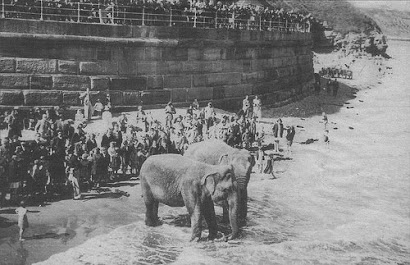 ...
...Irishman Patrick Castlehowe's marriage to Mary Bonas, the daughter of a Lealholm paper mill worker, is recorded in the Danby Church Registry. Soon after the wedding the couple moved to Ireland for a period of time, during which their son John was born. The year was 1792.
...
When he was two or three years old, the family moved back to Lealholm. At twelve years old John went to work in Lincolnshire as a gentleman's servant. After a couple of years he was back in Lealholm and gained employment in the 'mystery and trade' of a journeyman mason, a career he pursued for the rest of his working life.
...
John became known for his skill as a poet and songwriter, often with a hatful of scraps of paper on which he jotted ideas as they came to him. He was fond of music, particularly the fiddle and the flute. Due to the phonetic spelling often found in old records, his name became Castilo from his father's original Castlehowe.
...
 His first book of poems entitled 'The Bard of the Dales - Poems by John Castillo' was very popular, with its easy to follow simple rhyming and its portrayal of local events and characters. Many of the pieces were written in local dialect. Around 1819 he converted from his father's Catholicism to Methodism, which was becoming increasingly popular in the dales.
His first book of poems entitled 'The Bard of the Dales - Poems by John Castillo' was very popular, with its easy to follow simple rhyming and its portrayal of local events and characters. Many of the pieces were written in local dialect. Around 1819 he converted from his father's Catholicism to Methodism, which was becoming increasingly popular in the dales....
This lost him many friends and had an effect on his poetical output. His general outlook on life became increasingly puritanical, indeed Castillo became a successful and original local preacher among the Wesleyans for several years.
...
In later life John moved to Pickering and died on April 16th, 1845 aged 53. He is buried in the Wesleyan Burial Ground there.
...
His most famous dialect poem 'Awd Isaac' is thought to be about Isaac Hobb who lived near Glaisdale Church.
Links:




No comments:
Post a Comment